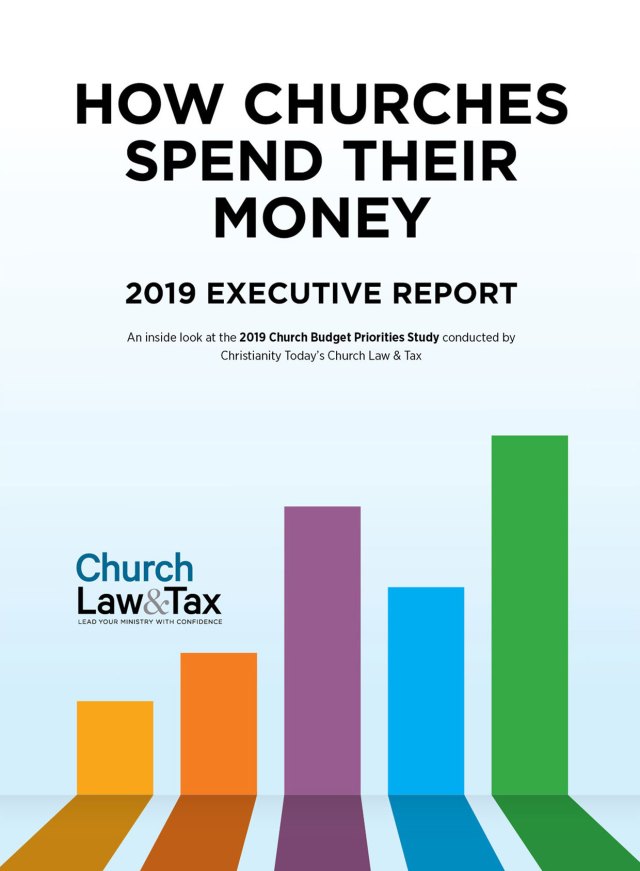Churches often hire people skilled in teaching, preaching, counseling, shepherding, and administration. But every church has practical needs, too—like mowing the lawn, patching a roof, or plowing the parking lot. These tasks often require hiring an outside professional.
Before doing so, church leaders must confirm that outside help is truly necessary. If it is, they should follow best practices to make the best hiring decision.
“One of our church’s high values is that we will not outsource something when we have qualified volunteers who can—and wish to—do the work. I stress the word ‘qualified,’” says Jim Boyd, director of support services for Calvary Baptist Church, Winston-Salem, North Carolina.
Ken Meines, director of facility services at Calvary Church in Grand Rapids, Michigan, agrees. He prefers to handle preventive maintenance in-house and outsource major repairs. “I usually try to troubleshoot the problem far enough to either order the part and fix it, or know which vendor to contact,” he says
Matching the Right Job to the Right Contractor
Churches often outsource services like:
- Landscaping
- Cleaning
- Heating and air conditioning
- Plumbing
- Electrical work
- Snow plowing
The goal is to match the project to a contractor’s true expertise.
“Sometimes a contractor will take a job because they need the work. But it may be outside of their primary area of expertise,”
says Frank Sommerville, attorney, nonprofit law specialist, CPA, and Church Law & Tax Senior Editorial Advisor.
Tips for finding the right match:
- Develop a profile of your ideal candidate;
- Ask detailed questions to compare candidates against that profile;
- Use your network—other churches, businesses, and community leaders—to find recommendations;
- Don’t rely solely on websites or online listings; get second and third opinions.
Start with consumer resources like:
Other churches may still be your best resource. Ask for references and inspect past work, if possible.
“If churches are given as a reference, contact the person who directly worked with the contractor. Ask about both the quality of work and service after the job,” Boyd says.
Your church network can also include groups like:
- National Association of Church Facility Managers (NACFM);
- International Facility Management Association (IFMA);
- Business professionals in your congregation.
Verifying Credentials
Don’t take “licensed and insured” at face value. Always ask for proof—and verify it.
Key items to confirm:
- Licensing: Requirements vary by trade and location. Roofers, electricians, and builders are usually licensed; janitors and landscapers may not be.
- Insurance: Ask the contractor’s insurer to send a certificate of insurance directly to your church.
- Coverage: Ensure liability and workers’ comp are appropriate for the job’s risk level.
“We specify what we expect for coverage and verify it with the insurance certificate. We are named as additionally insured on their policy,” Meines says.
Consider bonding for jobs involving subcontractors. Bonding protects your church if the contractor fails to pay their subcontractors or doesn’t finish the work. Boyd says his church asks for bonding from those who will be using several subcontractors.
Before signing anything, have an attorney review the contract.
Asking the Right Questions
Never hire a contractor without a face-to-face meeting. Ask for:
- References;
- Proof of insurance;
- Licensing and bonding documents.
Ask deeper questions to gauge reliability:
- How long have you been in business?
(Verify with your state’s business filing site.) - How many of your clients are churches?
Churches often need flexible schedules—like plowing snow Saturday night or prepping landscaping before Sunday. - Are you financially stable?
For large contracts, ask for financial statements or pay for a Dun & Bradstreet report. - How often have you rescheduled in the past six months? Why?
Occasional delays are normal (like for rain), but repeated issues could signal problems with staffing, equipment, or safety.
Getting Your Money’s Worth
To be good stewards, churches should compare pricing and performance.
Best practices:
- Request multiple bids with the same scope of work;
- Check current vendors’ prices against market rates;
- Talk to property pros in your congregation—they may offer insight.
“Going out for bids is the only real way to compare numbers. But evaluating quality is harder,” Meines says.
The lowest bid isn’t always the best. Value includes reliability, professionalism, and long-term service.
“Some companies cut costs by hiring undocumented workers or running outdated equipment. That leads to performance problems,” Sommerville says.
Avoiding Conflicts of Interest
What if a board member has a relative who’s a contractor? Or a church member wants the job?
Stay ethical and transparent:
- Get multiple bids;
- Evaluate all vendors equally;
- Exclude stakeholders from the decision process.
Sometimes a member offers a discount. Double-check that it’s a true deal.
Some churches avoid hiring members altogether to protect relationships. If your church allows it, follow strict procedures:
- Treat the member’s bid like any other;
- Exclude the member from voting on the decision;
- Document everything.
Don’t Rush the Process
Unless it’s an emergency, take your time when hiring contractors.
“Don’t be in a hurry to get the contract let. Take a few more days and hours. If you spend more time on the selection process, you spend less time on the management process,” Sommerville says.
A thorough selection process prevents problems and helps ensure you’re hiring the right person for the right job—at the right time and price.
We’ve used a combination of AI and human review to make this content easier to read and understand.





